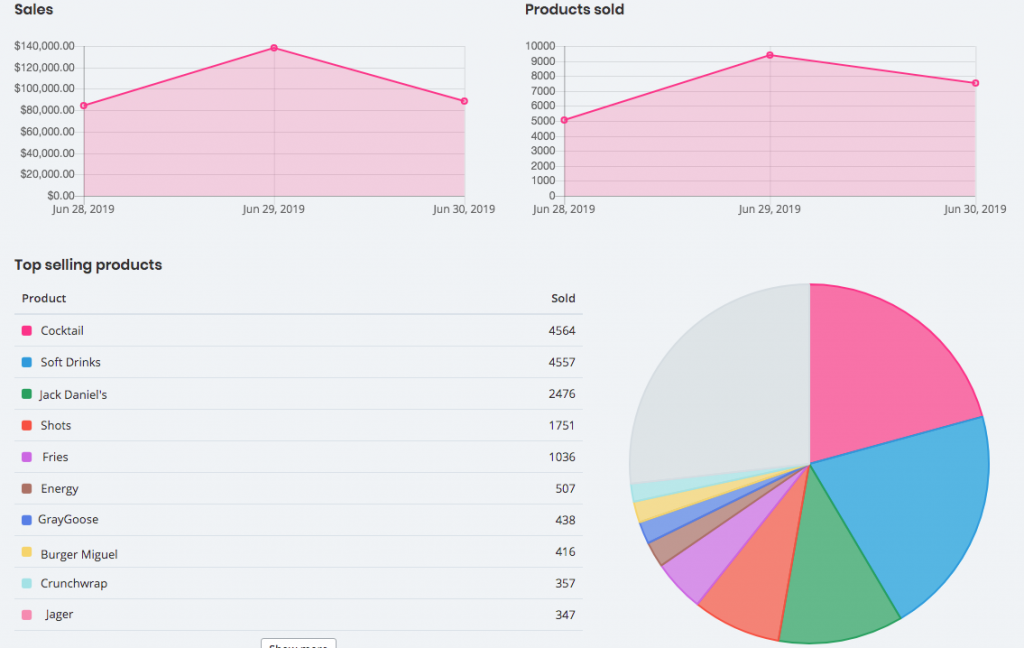There is no doubt that implementing a fast and secure payment solution is essential for the success of your festival. The existing payment alternatives in today’s world can create long-standing debates among event professionals. To avoid contradictions, the available resources enable festival organizers to identify the solution that most suits their needs.
Adopting a closed-loop payment system for you festival gives you access to live reports, after-event data, faster transaction processing, pre-event revenue, offline transactions, lower payments processing fees and tailored experiences (rewarding your loyal customers).
Let’s understand the big picture and identify general characteristics of closed-loop and open-loop payments for now.
General characteristics of closed-loop and open-loop models
Closed-loop payments – think of closed-loop payments as a solution that works in a defined economy. Gift cards provided by companies have a payment mechanism that allows clients to use them solely at participating locations. That’s an example of a closed-loop economy. As the administrator of such economy, you can establish to a certain extent who is using it and where it is used. It allows users to pre-load funds into a digital wallet, linked to a payment device such as a card or wristband. Although, remaining funds can’t be spent outside the defined economy, consumers can withdraw the remaining balance. In a closed-loop environment, banks or other institutions are not part of the transaction process. As an administrator, you have access to customer information and purchase behavior.
Open-loop payments – the open-loop system is connected to banks or other similar institutions that act as intermediaries. It can’t be controlled by a single entity and it allows consumers to pay at different locations approved by the card issuer. This payment model allows clients to withdraw funds from an ATM (extra fee involved) and to make purchases at stores or online. Businesses that use the open-loop model don’t have access to customer information, because intermediaries (banks or other institutions) own it.
Now that you better understand how these models work, the focus will shift towards the closed-loop model and its applicability for a festival or event.
Pre-event revenue
To maximize the efficiency of a closed-loop system and increase your festival revenue, choose a solution that allows participants to add funds in advance. This way, attendees can buy their favorite beverage and food from the moment of entry, eliminating the need of visiting a top-up station on site. As an organizer, this enables you to cover your festival costs by using the pre-top-up funds strategically. Participants that choose to top-up their virtual accounts online won’t have to worry if their balance has fallen under a certain amount. The ‘Auto top-up’ feature takes care of that. The end user App developed by Oveit can easily achieve that.
Reward your loyal attendees
In the open-loop environment, rewarding your loyal customers based on purchase behavior is very unlikely. As previously mentioned, banks or other institutions are the absolute owners of transaction history and customer information.
On the contrary, a closed-loop model doesn’t involve any intermediaries in the payment process. As a festival organizer, you can be the administrator of a closed-loop economy and create multiple sub-economies with Oveit. On top of that, you can collect information from your attendees and use it to offer better experiences. For a festival, attendees can redeem rewards using an NFC wristband or card. By doing that, you can identify individual preferences and surprise your clients with personalized rewards and experiences.
Transaction speed
For a large festival, the transaction speed is vital. The open-loop system requires the bank to approve every transaction and it can take about 7-8 seconds to process. Imagine how would that work for a festival with 100,000 attendees.
On the other side, transactions take 1-2 seconds to complete in a closed loop environment. Without any intermediaries involved in the payment process, waiting time is reduced, resulting in more sales and satisfied customers.
Offline transactions
Processing offline transactions in the open-loop environment is risky and often not possible. Festivals usually take place in fields or other remote locations. Setting up a stable internet connection is definitely not an easy task to accomplish.
The closed-loop payment alternative enables organizers to process sales on-site without an internet connection. Participants can top-up their digital wallets and vendors can charge for food, drinks and merchandise. The only downside of operating offline is that reports won’t update in real time. Oveit is a hybrid solution and if internet goes down, the party goes on!
Insights into vendor sales
The closed-loop payment solution available on Oveit is much appreciated by festival vendors. Each vendor has a dedicated account with access to detailed reports. Applying different filters enables them to see all products sold within a date and time range.
Running out of the most requested products is a thing of the past with Oveit!


